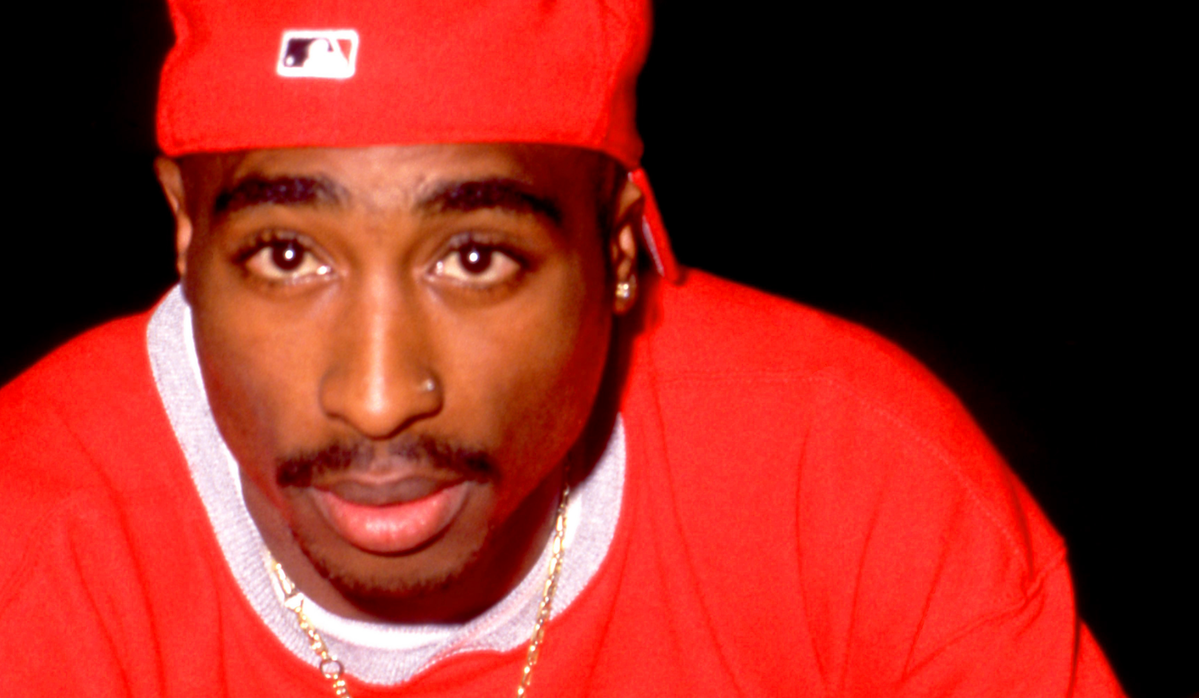
Dear Mama Shows There Is Still So Much We Don’t Know About Tupac
On Friday (April 21), the first two episodes of Dear Mama premiered. The docuseries, covering the parallel journeys of Tupac Shakur and his mother, Afeni Shakur, is directed by Allen Hughes, one-half of the Hughes Brothers team that gave viewers Menace II Society, Dead Presidents, and documentaries, including The Defiant Ones. In addition to the live broadcast on FX, the first two episodes are available on Hulu.
For episode #107 of the What’s The Headline podcast, the Ambrosia For Heads team—avid Tupac Shakur fans—spoke about some of the items they learned from those first two hours—after first reporting on the production in 2019. The conversation, available in the video and audio below, tries to avoid spoilers. Instead, it names some themes and rarely-discussed information found in Dear Mama, while celebrating the production quality of the docuseries.
Juice’s Director Reveals It Was By Chance That Tupac Auditioned For The Movie
Much of the discussion compares video footage of a high school-aged Tupac Shakur and another video filmed behind the walls of Clinton Correctional Facility in 1995. In both cases, it is a different Pac than is shown at other places in the film—where he uses curse words, goes into tirades, and expresses frustration at various institutions. Dear Mama portrays Tupac as a chameleon of sorts. Like a great actor, he played to his audience—which is why, as a relative unknown, he landed a role in Juice. That role quickly sealed the deal for an Interscope Records solo contract after the Digital Underground affiliate stated (as he does in footage in the film) that he did not wish to sign with Tommy Boy—where D.U. was.
Allen Hughes directed three music videos for Tupac and speaks about how the man evolved between 1991 and 1993. Hughes, who directed “Brenda’s Got A Baby,” “Trapped,” and “When My Homie Calls,” was attacked by Tupac after a falling out surrounding the role of “Sharif.” Tupac demanded input on the character, asking for script revisions. The Hughes Brothers allegedly refused, leading to name-calling, an ensuing altercation, and legal action. Dear Mama shows how Tupac had changed with previously-unseen footage from the third and final Hughes Brothers-directed music video, “When My Homie Calls.” Allen also appears on camera to describe the events and how they affected his relationship with a former collaborator. Snoop Dogg laughs in recounting how bad things had gotten—pointing to some of the respected street folks Tupac was rolling with at the time.
Snoop also points out that some of Tupac’s Thug Life entourage was gang-affiliated. Years before Pac would sign with Death Row Records—a label renowned for having Crips and Bloods on staff—he reportedly had Monster Kody (aka Sanyika Shakur) and Cle “Bone” Sloan on his security detail. Thug Life had a code created by Mutulu Shakur—Pac’s then-incarcerated stepfather. On the outside, Tupac created a group and used the mantra for it to gain recognition and popularity.
Dear Mama’s first two episodes unpack a lot of Afeni Shakur’s story, especially her role within The Black Panther Party and her knack for recruiting others. The film alleges that Tupac planned to become the Chairman of the New Afrikan Panthers. Instead, the artist found success in film and music, which he believed allowed him to distribute messages. The film alleges that the late activist was instrumental in creating The Patient’s Bill Of Rights at hospitals after public demonstrations in New York City.
How Prison Transformed Tupac But Could Not Save Him From Death Row
Additionally, Dear Mama features interviews with Bay Area rapper Ray Luv. Ray, a rhyme partner of Shakur’s in the pre-fame group Strictly Dope, says he wrote the first bar of “Trapped.” While Pac was reportedly against other MCs penning his lyrics, he showed his friend the value of his words. Years later, Ray Luv would find success working with Mac Dre, Mac Mall, JT The Bigga Figga, and others. Ray also recalls a short-lived stint of him and Pac attempting to sell drugs. “Capitalism requires that your empathy level is low,” he says, adding that the two men were poorly suited and failed. Old footage from Shock G, as well as new interviews with Digital Underground’s Money B and Chopmaster J, explain how Tupac endeared himself to the Oakland, California crew. Footage of Shock explains why the young Pac quickly presented as a group member, more than one of its many affiliates.
The series has rare footage of Tupac Shakur rapping, including one of his published poems, to the beat of Eric B. & Rakim’s “Paid In Full.” Demo versions of “Changes” and “Dear Mama” are used to show his mighty pen—including unveiling that the latter was based around The Spinners’ “Sadie.” Production changes ultimately shifted the sound of that record but not its connection to the 20-year-old Soul record.
25 Years Ago, Digital Underground & Tupac Asked A Question That Still Needs Answers (Video)
The archival images and video, sound design, and music supervision is top-choice from a film produced by Nelson George, Charles D. King, QDIII, and much of the Interscope team that would work with Pac. Photos of Tupac show the artist following a beating by police. Others reveal a time when a teenage Pac had blonde streaks in his hair.
AFH readers can catch regular discussions about the culture on our What’s The Headline. The podcast also features interviews with Rapper Big Pooh, Cormega, Meyhem Lauren & Daringer, Diamond D, AZ, Blu & Mickey Factz, Joell Ortiz, Kurupt, Evidence, Skyzoo, Pharoahe Monch, Prince Paul & Don Newkirk, Statik Selektah, Lyric Jones, The LOX, MC Eiht, Havoc, Duckwrth, photographer T. Eric Monroe, and Lord Finesse.
Rapsody’s Dedication To Afeni Shakur Reminds Women To Keep Ya Head Up (Video)
#BonusBeat: A 2020 What’s The Headline interview with MC Eiht, where he speaks about Menace II Society and much more: